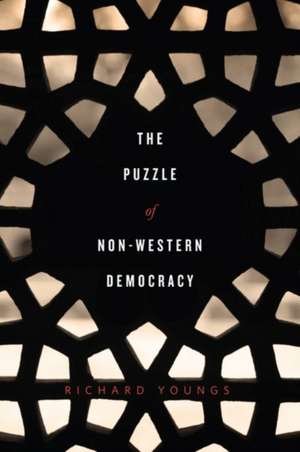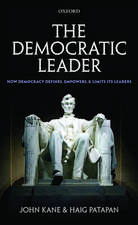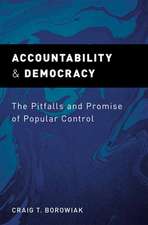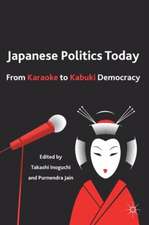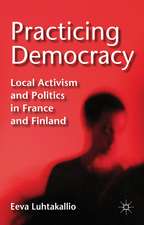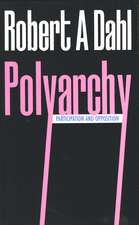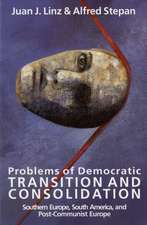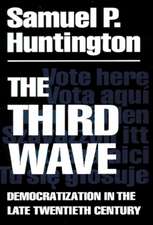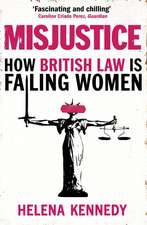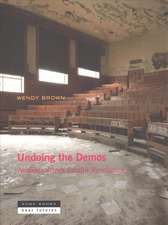The Puzzle of Non-Western Democracy
Autor Richard Youngsen Limba Engleză Paperback – 8 sep 2015
Preț: 111.14 lei
Nou
Puncte Express: 167
Preț estimativ în valută:
21.27€ • 22.26$ • 17.60£
21.27€ • 22.26$ • 17.60£
Carte disponibilă
Livrare economică 15-29 martie
Preluare comenzi: 021 569.72.76
Specificații
ISBN-13: 9780870034282
ISBN-10: 0870034286
Pagini: 240
Dimensiuni: 152 x 229 x 13 mm
Greutate: 0.36 kg
Editura: Brookings Institution Press
Colecția Carnegie Endowment for Int'l Peace
ISBN-10: 0870034286
Pagini: 240
Dimensiuni: 152 x 229 x 13 mm
Greutate: 0.36 kg
Editura: Brookings Institution Press
Colecția Carnegie Endowment for Int'l Peace
Notă biografică
Richard Young has been working in IT for over 35 years and is currently a principal consultant in the professional services division of Lenovo Global Technologies, covering EMEA. He works closely with customers to assist them in their journey to the cloud with a focus on hybrid cloud, especially focused on Microsoft Azure. His role covers both the strategy and deployment of hybrid cloud using Microsoft Azure Stack Hub and Azure Stack HCI. He holds both MCSE and MCSA certifications for Azure. He holds the MCPD certification for .NET development for the cloud, from back when he was a developer. He has been involved in multiple deployments of Azure Stack Hub throughout Europe over the last few years. He is a husband, father, and grandfather.
Descriere
Western democracy is being questioned around the world. At the same time, Western aid groups are quick to say that they are not trying to impose a particular style of democracy on others and that they are open to supporting local, alternative forms of democracy. This book examines what it is about Western democracy that non-Westerners are reacting negatively to and whether the critics often are equating a dislike for certain Western social or economic features with an aversion to of Western political systems. It also explores the current state of debate about alternative forms of democratic practice in different regions—Asia, Africa, the Middle East, and Latin America—and then puts forward ideas about how Western actors engaged in democracy support can do a better job of incorporating new thinking about alternative democratic forms into their efforts.
